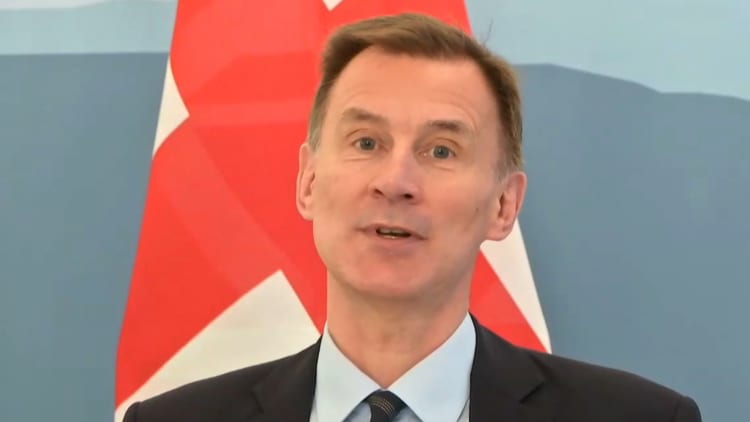
British Finance Minister Jeremy Hunt told CNBC that the “first-of-its-kind” deal was a win for post-Brexit Britain that “wouldn’t have been possible to sign” inside the European Union.
He added that the mutual recognition accord, dubbed the Bern Financial Services Agreement, would provide a “blueprint” for future deals with other countries.
“This is a new type of trade agreement that we can use as a model for future agreements that we have with other markets as well,” Hunt said during a news conference announcing the deal.

Hunt was in Bern, Switzerland, to sign the agreement with his Swiss counterpart, Karin Keller-Sutter, who said it would “boost the international competitiveness” of both markets over the long term.
The deal, which follows more than two years of negotiations, aims to streamline business ties between financial firms and wealthy individuals in the two markets, and improve cross-border access to a range of financial services sold by banks, insurers and asset managers.
It follows a so-called deference model, which allows firms to operate in the partner country while following just one set of regulations and without necessarily having to open a local base. As such, financial services providers and insurers will be able to offer certain cross-border activities in both Switzerland and the U.K.
The terms will also allow Swiss firms to serve wealthy individuals within the U.K., either locally or cross-border, replicating privileges currently available to British firms in Switzerland. Meanwhile, U.K. advisors will be permitted to “temporarily serve” wealthy clients locally in Switzerland without registering in the country.
Hunt described the plans as a “light-touch, progressive, future-leaning way of opening access,” which would provide a significant boost for the City of London. Hunt added that the deal could potentially be extended to include retail and sustainable finance in the future.
The deal will need to be approved by parliaments in both countries before entering into force next year. However, some commentators were optimistic that it would mark an improvement on the equivalence framework Britain